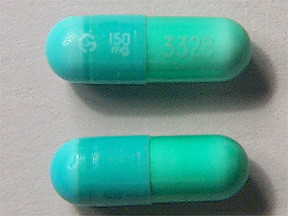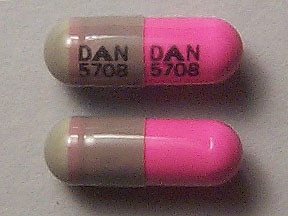CLINDAMYCIN - ORAL
PHONETIC PRONUNCIATION: (KLIN-da-MYE-sin)
COMMON BRAND NAME(S): Cleocin
GENERIC NAME(S): clindamycin HCl
Uses
USES: Clindamycin is used to treat a wide variety of bacterial infections. It is an antibiotic that works by stopping the growth of bacteria. This antibiotic treats only bacterial infections. It will not work for virus infections (such as common cold, flu). Using any antibiotic when it is not needed can cause it to not work for future infections.
How to use CLINDAMYCIN - ORAL
HOW TO USE: Take this medication by mouth with or without food, usually 4 times a day (every 6 hours), or as directed by your doctor. Take it with a full glass of water (8 ounces or 240 milliliters) unless your doctor directs you otherwise. Do not lie down for at least 10 minutes after taking this medication. The dosage is based on your medical condition and response to treatment. In children, the dose is also based on weight. For the best effect, take this antibiotic at evenly spaced times. To help you remember, take this medication at the same time(s) every day. Continue to take this medication until the full prescribed amount is finished, even if symptoms disappear after a few days. Stopping the medication too early may result in a return of the infection. Tell your doctor if your condition persists or worsens.
Side Effects
Precautions
Interactions
Overdose
Images

- color
- pink
- shape
- oblong
- imprint
- DAN 3120, DAN 3120

- color
- pink
- shape
- oblong
- imprint
- DAN 3120, DAN 3120

- color
- pink
- shape
- oblong
- imprint
- DAN 3120, DAN 3120

- color
- light blue-green
- shape
- oblong
- imprint
- G 150 mg, 3328

- color
- light blue
- shape
- oblong
- imprint
- G 300 mg, 5010

- color
- light blue
- shape
- oblong
- imprint
- G 300 mg, 5010

- color
- pink
- shape
- oblong
- imprint
- DAN 5708, DAN 5708

- color
- light blue
- shape
- oblong
- imprint
- LCI 1383

- color
- light blue
- shape
- oblong
- imprint
- LCI 1383
Reviews
Faq for CLINDAMYCIN - ORAL
Clindamycin oral is an antibiotic medication used to treat various bacterial infections such as skin infections, respiratory tract infections, dental infections, and bone infections.
Clindamycin oral is typically taken by mouth with a full glass of water. It is important to follow the prescribed dosage and complete the full course of treatment, even if symptoms improve before finishing the medication.
Common side effects of clindamycin oral may include nausea, vomiting, stomach pain, diarrhea, rash, or itching. If any severe or persistent side effects occur, it is recommended to seek medical attention.
Clindamycin oral is generally considered safe to use during pregnancy, but it is always recommended to consult with a healthcare professional before taking any medication while pregnant.
No, clindamycin oral is only effective against bacterial infections and does not treat viral infections such as the common cold or flu.
Yes, clindamycin oral may interact with other medications, including certain antibiotics, anticoagulants, and muscle relaxants. It is important to inform your healthcare provider about all the medications you are taking to avoid any potential drug interactions.
The effectiveness of clindamycin oral can vary depending on the type and severity of the infection being treated. In general, improvement in symptoms may be noticed within a few days, but it is crucial to complete the full course of treatment as prescribed by your healthcare provider.
If you miss a dose of clindamycin oral, take it as soon as you remember. However, if it is close to the time for your next scheduled dose, skip the missed dose and continue with your regular dosing schedule. Do not double the dose to make up for a missed one.
Yes, clindamycin oral can rarely cause allergic reactions. If you experience symptoms such as rash, itching, swelling, severe dizziness, or difficulty breathing, seek immediate medical attention.
Warning
WARNING: This medication may cause a severe (rarely fatal) intestinal condition (Clostridium difficile-associated diarrhea) due to a type of resistant bacteria. This condition may occur during treatment or weeks to months after treatment has stopped. Tell your doctor right away if you develop persistent diarrhea, abdominal or stomach pain/cramping, or blood/mucus in your stool. Do not use anti-diarrhea products or narcotic pain medications if you have any of these symptoms because these products may make them worse.
Disclaimer
IMPORTANT: HOW TO USE THIS INFORMATION: This is a summary and does NOT have all possible information about this product. This information does not assure that this product is safe, effective, or appropriate for you. This information is not individual medical advice and does not substitute for the advice of your health care professional. Always ask your health care professional for complete information about this product and your specific health needs.
No Reviews Yet